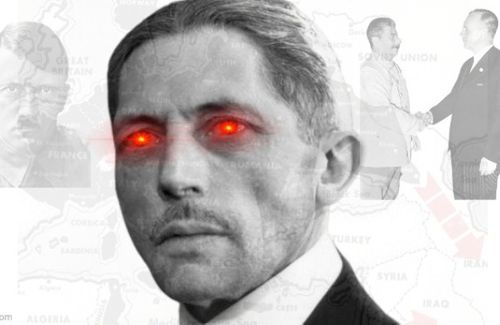The Historian who Predicted World War II
Apr 30, 2023 · 14 mins read
0
Share

World War I and Versailles

In 1920, this man managed to predict World War II step by step, Anschluss and Molotov-Ribbentrop pact included, by reading maps and history books
Buckle up, in this memo, we will explore the most prophetic book ever written in history
Save
Share
After WW1, Germany was amputated of 13% of its territory and 10% of its population by the treaty of Versailles
The Rhineland was demilitarized, the Saar coalfields given to France, the German army reduced to 100 000 and its fleet to 6 battleships (and no submarines)

Save
Share
In 1920, a then obscure British economist published "The economic consequences of peace" in which denounced the treaty
He predicted that this harsh « Carthaginian peace » would ultimately collapse Europe’s economic model.
The allies need to help, not punish, Germany.
Save
Share
The author is John Maynard Keynes, one of the greatest economic thinkers and his book continues to shape the way we think of Versailles and post-war treaties.
His book is often hailed as one of the most prescient forecast of the economics and politics of interwar Europe.

Save
Share
In comes... Jacques Bainville, a respected nationalist historian who thinks Keynes is totally missing the bigger picture Politics trump economics, especially with Versailles To make that very clear, he calls his pamphlet the *Political* Consequences of Peace

Save
Share
For Bainville Versailles is "a peace that is too soft for its hardness, and too hard for its softness." It does humiliate Germany, but crucially it doesn't seriously weaken it. Germany remains Europe's demographic giant. Worse still, Germany remains united

Save
Share
His main thesis is that Versailles is a moral and economic treaty, not a political treaty. As a result "Germany is unified in contrast to a fragmented Europe.
That’s the mother of all troubles.

Save
Share
Bainville is voicing long-established foreign policy thinking in France: for centuries France had kept Germany divided into a myriad of micro entities.
As François Mauriac would write during the Cold War "I love Germany so much I'm glad there are 2 of them"

Save
Share
The 30 year war is a prime example of this strategy. The French joined the largely protestant anti-Habsburg coalition, limiting the Habsburg monarchy’s influence in Germany
By the way I did a memo on the crazy logistics of this war that you should check out:
Save
Share
It took Germany a century to recover from the demographic disaster that was the 30 year war. In the mean time France was the clear demographic powerhouse of Europe with weak neighbors on its eastern border.
Here's the population map of Europe in 1789

Save
Share
0